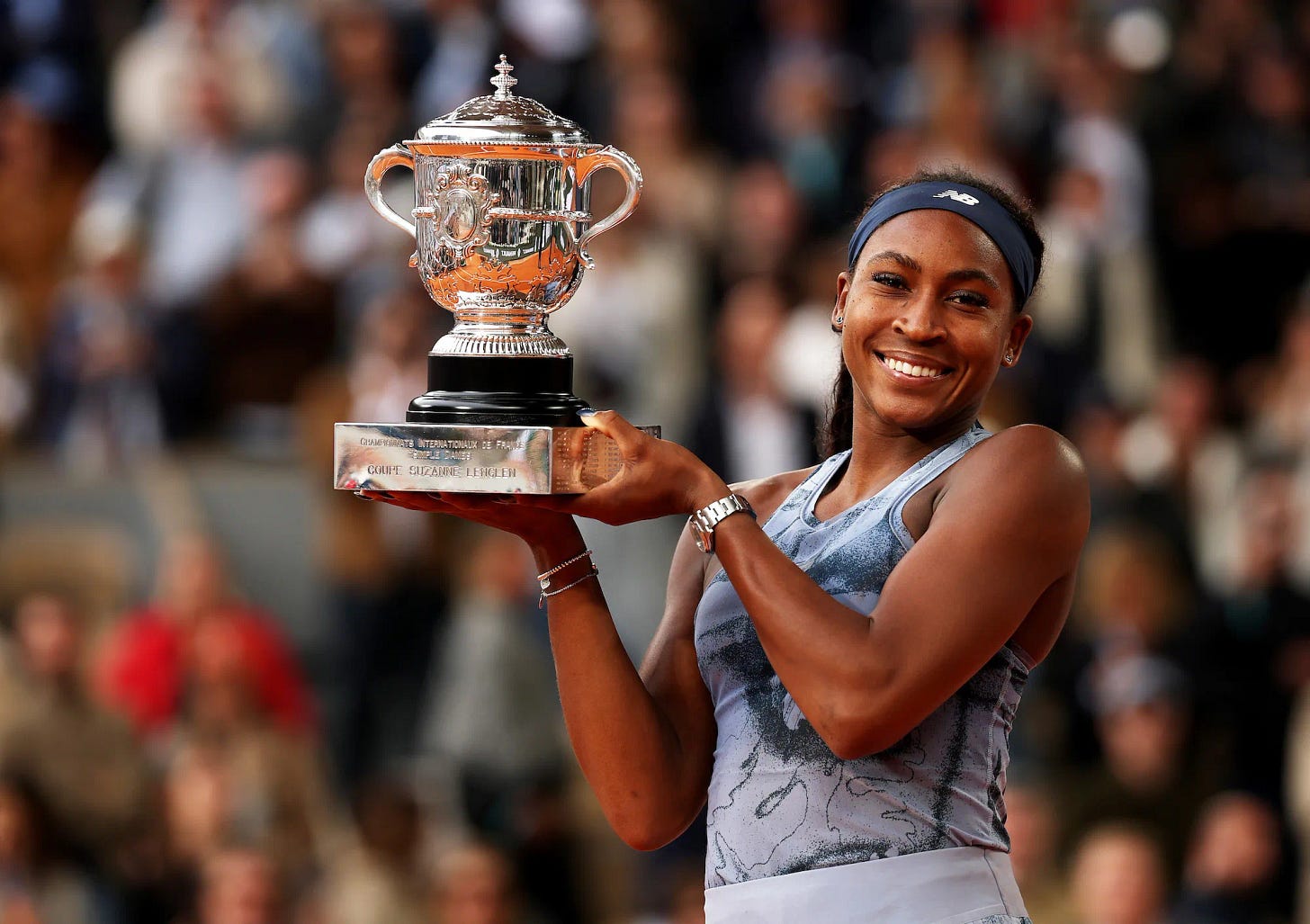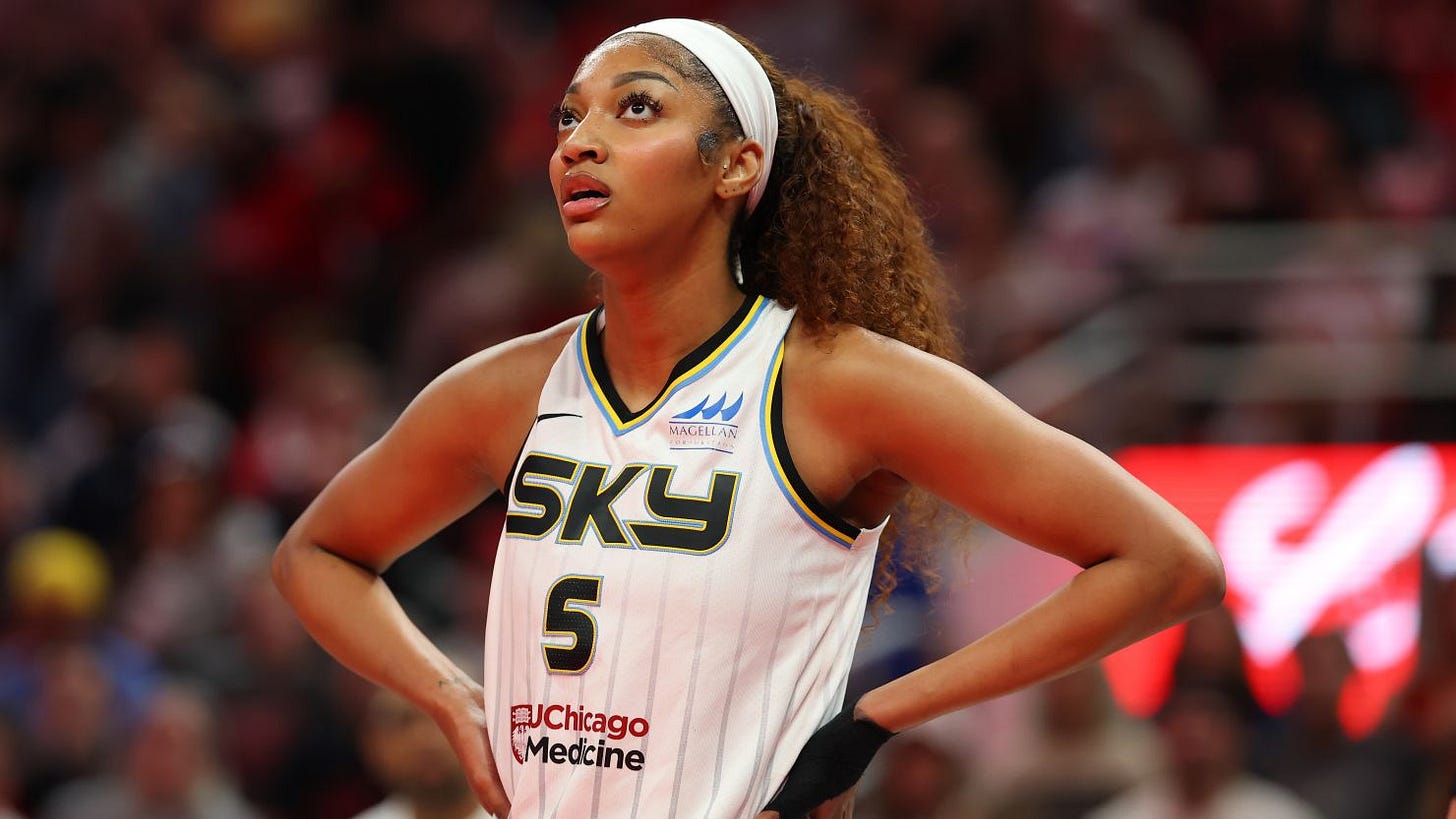Power, Paydays & Public Perception
From courtroom rulings to championship wins, athletes are claiming space, setting boundaries, and rewriting the playbook.
What a week for the business of sport. From historic legal moves to championship podiums and press conference moments—we’ve seen just how complex (and powerful) athlete voices are.
This week’s edition unpacks three major storylines shaping the future of sports and how we talk about athletes beyond the stat sheet.
🔒 The NCAA Settlement & the Fight Over Fairness
After decades of debate over athlete compensation, the NCAA’s landmark settlement now allows schools to pay athletes directly—a groundbreaking move that opens the door to a formal revenue-sharing model across college sports. This means athletes could receive direct compensation from their universities, finally recognizing their role as revenue drivers.
But the celebration has been complicated by a challenge filed by a group of female athletes who argue the settlement violates Title IX by not guaranteeing equitable payments for women across all sports. While men's football and basketball programs often bring in the most money, this new era can’t afford to repeat the inequities of the past.
For athletes—and especially for parents, coaches, and advocates—this is the time to stay informed, speak up, and demand equity. Future revenue models must include clear plans for distribution across all sports and genders, ensuring that opportunity isn’t reserved only for the most visible.
This is a shift that’s bigger than dollars. It’s about ownership, recognition, and agency—and we must make sure the entire community benefits.
More: Appeal of NCAA settlement won't stop current athlete payments
🏆 Coco Gauff, the French Open, and Media Precision
Coco Gauff clinched another historic win at the French Open, adding to her growing legacy as one of tennis’ brightest stars. But instead of the headlines focusing solely on her performance, much of the post-match coverage centered on comments made by her opponent, Aryna Sabalenka.
Sabalenka didn’t explicitly mention race, but she suggested Coco only won because of her own errors, refusing to credit Gauff’s brilliance on the court. This wasn’t the first time Sabalenka minimized Coco’s achievements, and while subtle, this kind of narrative is familiar: when Black women excel, their success is too often downplayed as luck, timing, or someone else’s mistake.
Gauff handled it all with her usual poise, staying grounded in her purpose and clear on her value. But this moment is another reminder that even at the top, Black women athletes are navigating narratives that can diminish or distract from their excellence.
More: Aryna Sabalenka Breaks Silence On Eyebrow-Raising Coco Gauff Remarks — And People Have Thoughts
Black athletes are often expected to take the high road, which, in this instance, Coco did with grace. However, it's important to note that she also advocated for herself, pushing back against the detractors. It's important for young athletes to know that you have the space and the grace to talk your talk when you're able to back it up. You can affirm your greatness without being mean or rude, especially when you've earned the right to pop your ish.
🌟 Angel Reese & the Right to Redirect
During a postgame press conference this week, Angel Reese was asked a question that had little to do with her performance on the court. Instead, it focused on online negativity—a line of questioning that athletes are too often forced to navigate.
Angel handled it as best she could, but it was her teammate, Ariel Atkins, who stepped in and redirected the conversation. She reminded the reporter and everyone watching that Angel deserves to be asked about her game—about her rebounds, her hustle, her leadership, and her growth.
That moment was powerful, but it also opened the door to a bigger conversation about stan culture and the obsessive dynamics that have emerged in sports fandom online. What begins as fan debate can quickly spiral into harassment, trolling, and even threats. And the reality is—these aren't just comments. They're attacks that athletes, especially women and marginalized athletes, are expected to absorb without retaliation.
We need to reckon with how this culture shapes sports. When we reduce athletes to storylines, spectacles, or clickbait, we strip away their humanity. And while most of it lives online, unchecked behavior can spill over into real life. The digital tunnel vision of stan wars and keyboard warriors must be met with stronger boundaries, better media literacy, and a renewed focus on what really matters: the game, and the people playing it.
For athletes: protect your peace. Not every comment deserves a response. Set boundaries. Curate your circle. And remember—your voice is most powerful when it's rooted in truth and clarity. You don’t owe anyone your vulnerability unless you choose to give it.
More: Sky Veteran Stood Up for Angel Reese After Reporter’s Non-Basketball Related Question
This week, I had the opportunity to be featured on the Christ Over Culture podcast to discuss my journey with The Gifted Collective. You can check the full episode out below:
Have a great weekend.






